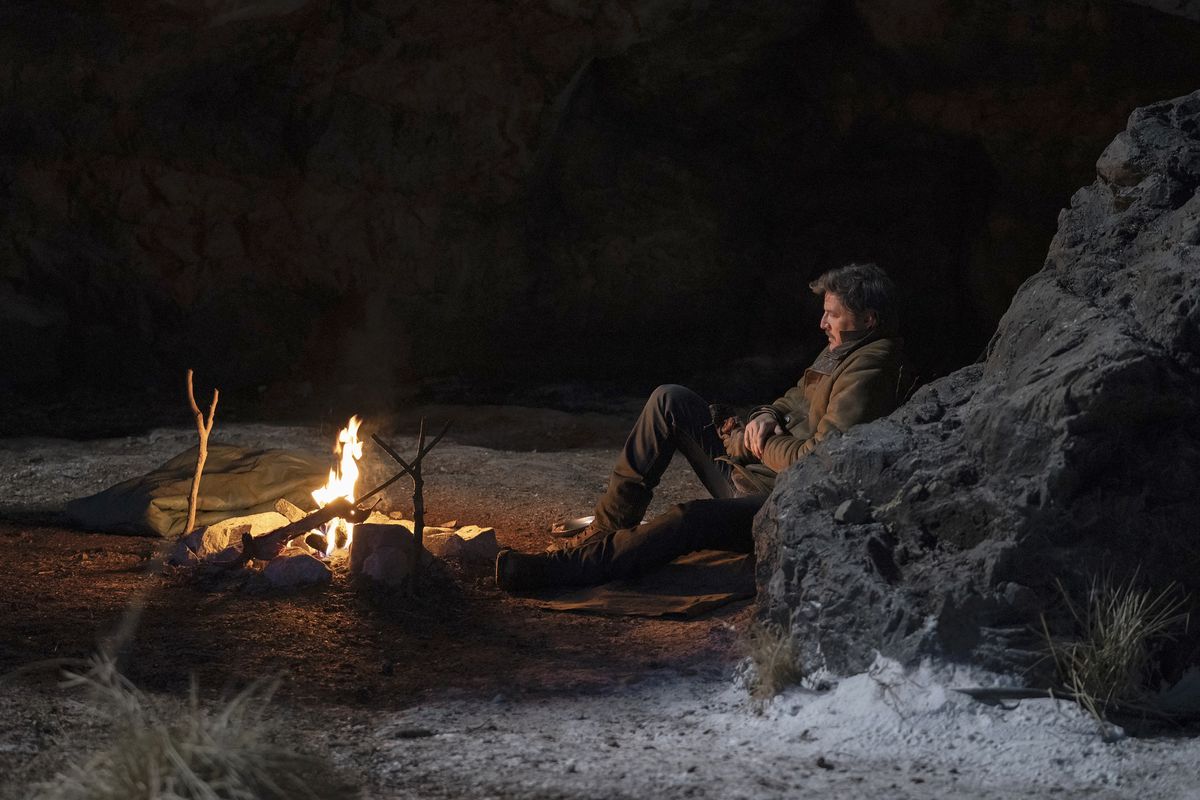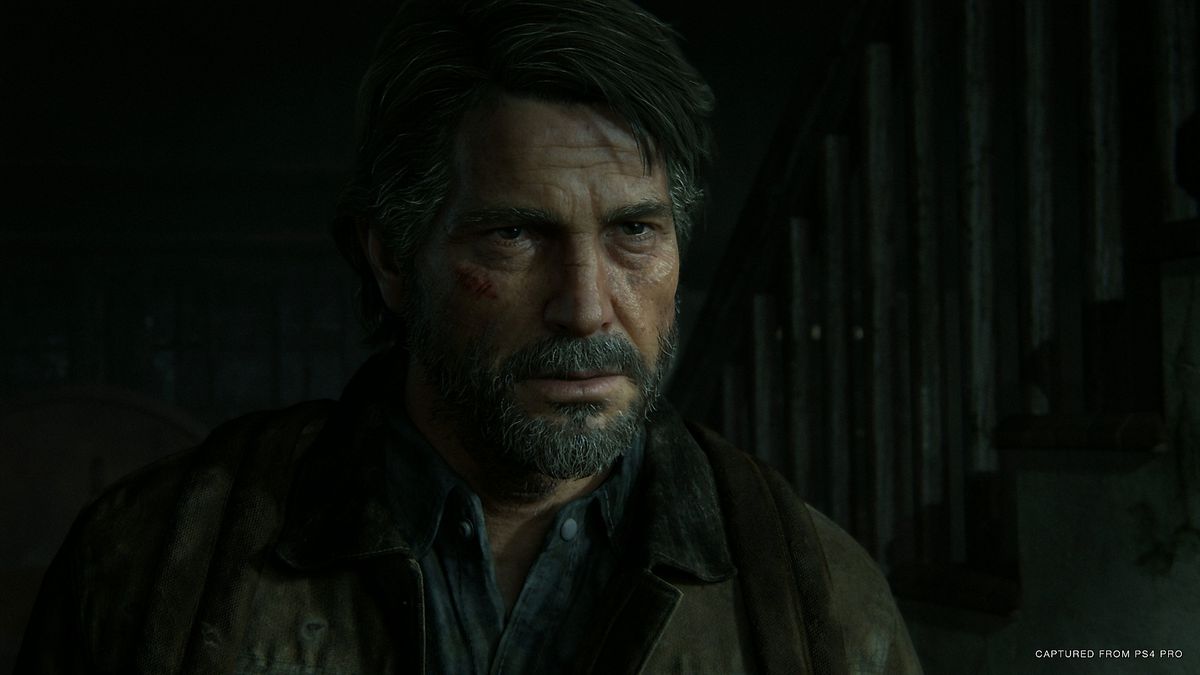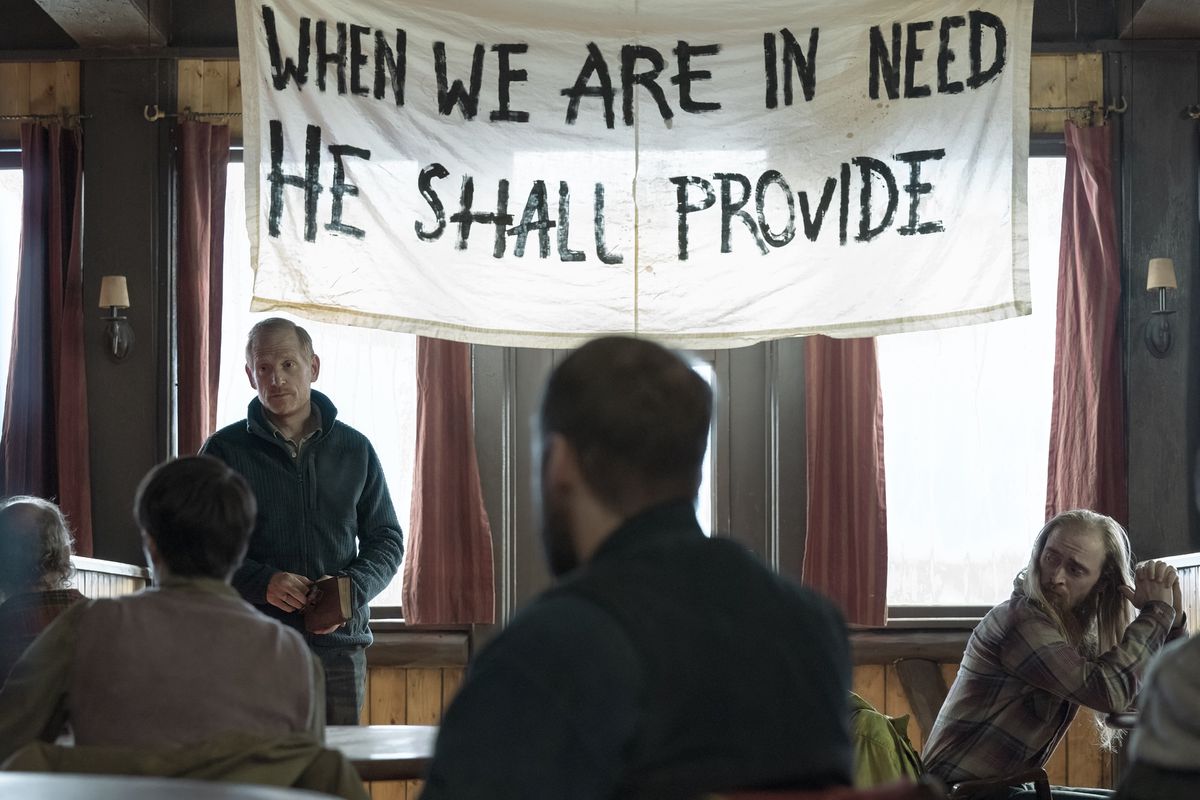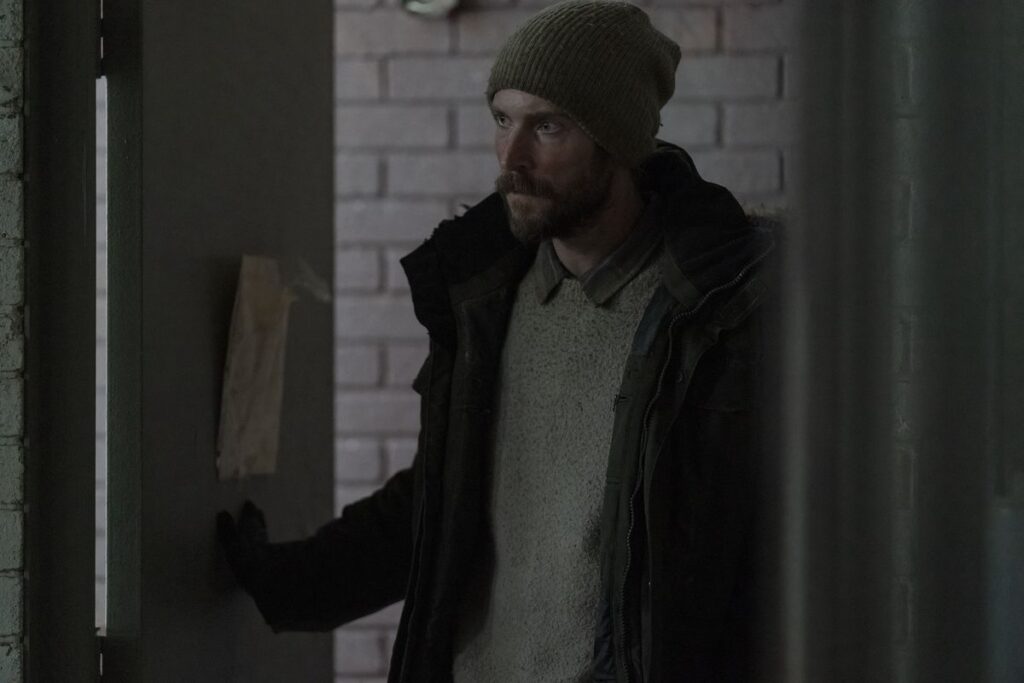Troy Baker has always been a true believer. Most people know him for his work as a prolific voice actor, and his career-defining role as Joel from the PlayStation games The Last of Us and The Last of Us Part 2. But the games’ fan community can also count him as one of its most prominent members — from day one, there have been few bigger Last of Us stans than he.
Baker, like many who love the story kicked off by Naughty Dog’s 2013 video game, fully believes that The Last of Us is “one of the greatest stories ever told,” both for the plight of its human characters and for the way that it brought a uniquely immersive and cinematic texture to big-budget video games, effectively changing them forever.
When The Last of Us made the leap to HBO, Baker was looking forward to making the transition to 100% fan, watching from “the stands,” as he put it. But then he got the call to once again be a part of Joel and Ellie’s story — this time as James, the right-hand man of a preacher with dark secrets.
In a Zoom interview from Los Angeles, Baker talked to Polygon about handing the reins over, his conflicted new character, and how to make your one and only death scene count.
Photo: Liane Hentscher/HBO
Polygon: So, before the show, how did you describe The Last of Us to people?
Troy Baker: Kind of the same way that I would after the show came out. I think that The Last of Us is one of the greatest stories ever told. And the reason why is because it’s not about you know, infected. It’s not about post-apocalypse, it’s not about survival horror, it’s a story about love, and what love looks like in this world, and how terrifying that is. So to me, it’s been one of the greatest games ever, because everything about the game was inspired by the story.
What’s the experience been like watching the role of Joel be recast and translated to a new medium? Is it weird for you?
I wouldn’t necessarily call it recasting; I think that they cast the game, and now you cast the show. So it’s not like — there was nothing lost, to me. The only thing that would have been a loss is if Pedro [Pascal] stepped into this role — or really anybody — and decided to mimic something that had already been done.
It’s like, well, that’s a lost opportunity. We have all these new tools at our disposal in which to tell the story; let’s exploit those tools. We don’t have a controller, we don’t have gameplay. So let’s lean into the tools that we do have and let’s tell a different version of the story that way. And Pedro brings to it a different inherent sensibility.

Photo: Liane Hentscher/HBO

Image: Naughty Dog/Sony Interactive Entertainment
Yeah, it’s like how one of the greatest compliments you can give to an actor is “I love your choices.”
I love the choices, man. There’s typically one or two every episode that Pedro does and it’s like, Oooooh, that’s good. You know, honestly, Neil [Druckmann] had the same thing with Craig [Mazin]. The choice to make Sam deaf — Craig was like, “I got this idea. I think I want to make Sam deaf.” And Neil was like, “A great choice!”
That wouldn’t have worked as well in the game. But here in this version of our story, it adds a whole other layer to that relationship, it brings a certain intimacy to all of their interactions, and it changes the dynamic of the relationship between Henry and Sam in a beautiful way.
How did you get involved with the show? Did you know they were trying to make room for the game’s voice cast?
Oh, it was never a given, it was never an assumption. It was always, Look, our watch has ended. And it was a wonderful opportunity for us to experience this story in a different way. I get to be in the stands, not on the field.
When Craig and Neil were like, “Hey, we have a role for you,” I was expecting kind of like a walk-on. A little cameo, a little wink to the audience. Like [with a] clicker, you know, maybe wearing a flannel shirt or something that Joel probably would have been wearing.
James is a much bigger role than that!
James is such a reflection of what this show is all about, which is: Let’s build upon, let’s not replace, and this character is one of those characters that you kind of glossed over in the game. But in this show, we have an opportunity to go, Who is he? Where does he fit into this story? Everybody that we’ve seen so far in the show somehow serves as a counterpoint to Joel or Ellie. And, to me, there’s an element of James that does both.
There’s a difference between he and Joel; there’s a similarity between he and Joel. And there’s a vast difference between he and Ellie. And that is what David sees in James, which is that he’s a pragmatist and someone that is capable [and] has this position, but isn’t violent. And Ellie is [violent], and David is a violent person. He has, as he says, a “violent heart.”
And that is what he is missing in a peer and an equal. And that is something that James can never be for him, and James picks up on that. And that’s why he wants Ellie as far away from him as possible.

Photo: Liane Hentscher/HBO
You said James is not a violent man — do you think he’s also not a believer in the way David is, or pretends to be?
Not at all, and I don’t think David is either. This is my interpretation — this is what I love about being on the other side of this, the conversation. We have seen, systematically, people in history who seek to oppress and control. One of the easiest tools at their disposal is, on its face, faith or belief. But at the truth of it, it’s hope, they weaponize hope against the desperate.
And that’s what these people are. They’re not bad people. They’re desperate people. They’re people who have gone through a really, really, really hard winter. And as James says, “They haven’t lost faith. They’re just scared.” And when you couple fear and desperation, in the face of despair — when you strip them of all their resources — these people don’t have food, much less anything else tangible. So when all of the tangible resources of comfort are gone, then you grasp towards the intangible, and hope is the primary commodity.
David has weaponized that. So when James looks at him and he says, “Well, maybe it’s God’s will” — this is an intellectual debate that we’re seeing. And he’s using that against David, to go, Get this girl away from here. It’s an intellectual debate to say that, as well as, “She’s just another mouth to feed.” So now he’s even chipping away at [David’s] ability to lead. And that’s why David stops. And what does he do? He turns to everybody else, and he quotes a verse — actually not even a verse, but we find out that’s [a quote from] somebody else who is known for oppressing people with faith.
So when you found out you were going to play James, did you have any hopes for the role? Maybe a cool death scene?
Honestly, when I first found out that I was gonna play James, I was like, “Dude, thank you so much. It’s very, very gracious — who is James?”
Because he wasn’t a big character. But then I realized, I was like, Oh, yeah, he’s gonna die horrifically. I love death scenes. They’re great. One of the advantages of doing a game is that if you’re the player character, you get to do multiple death scenes.
But you only get to die once in the show! How do you make it count?
Dude: Sell out every time because you never know which one is gonna be your close-up. [laughs] Full sale, every take!

